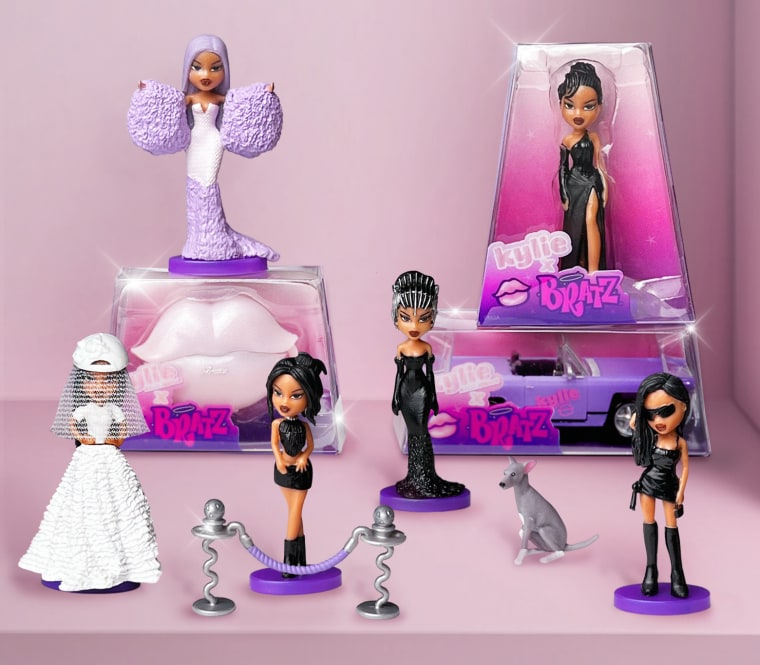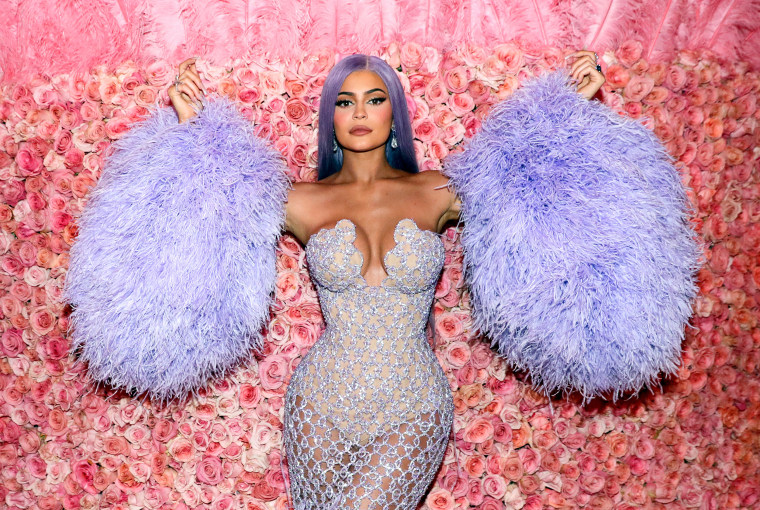Bratz, the popular toy brand, described celebrity Kylie Jenner as the embodiment of what its dolls have stood for since their debut over two decades ago, calling her “disruptive and rebellious to energetic and expressive.”
But for some fans of the toy brand, the new Jenner doll — which launched Tuesday — does not represent the doll they grew up with.
Jenner has been compared to a Bratz doll for years by her fans and her own family. The newly launched collection includes six minidolls inspired by some of her iconic red carpet looks.
There were some who praised the doll in comments announcing the news on TikTok and Instagram. However a large number of fans also expressed their disappointment that the first celebrity Bratz doll was a white woman because of the toy’s significance among Black girls and other girls of color. The fact that Jenner has been accused of cultural appropriation and blackfishing in the past added insult to injury for many Bratz lovers.
“Giving Kylie (a white woman who modeled her face/body around Black women) her own Bratz doll (which is an arguably more Urban/Black presenting doll) before an ACTUAL Black woman is … weird,” one person wrote on X.
“first collab being with a white woman when bratz dolls were heavily inspired by women of color ... ,” another user posted.

A spokesperson for Bratz declined to comment on the social media reactions to the collaboration. A representative for Jenner also declined to comment.
Some users on X, the platform formerly known as Twitter, pointed out that Bratz dolls — which were introduced by MGA Entertainment in 2001 — are often celebrated for popularizing and normalizing non-Eurocentric beauty in the mainstream. While the Bratz were created with some ethnic ambiguity, many nonwhite young women saw themselves in the dolls, which were often seen as more diverse than Barbie dolls.
That ambiguity is a double-edged sword, according to Dr. Jillian Hernandez, a women’s studies scholar and author of “Aesthetics of Excess: The Art and Politics of Black and Latina Embodiment.”
“On the one hand, the ambiguity made them very relatable to working class girls of color, who embraced them in juxtaposition to Barbie who seemed much more squarely sort of European American with very particular features and aesthetics,” Hernandez said of Bratz dolls. “But that very same ambiguity is what sort of then creates space for this kind of cultural appropriation.”
White women are often celebrated and rewarded for adopting physical features “that resemble those of women of the African diaspora,” such as fuller lips, darker skin or curvier bodies. Meanwhile, actual women of color get overlooked, such as in the case of this Bratz collaboration.
“Disappointment in popular culture is nothing new for women of color,” said Hernandez.
Some online said they felt Jenner did in fact embody Bratz, as both she and the brand have been criticized in the past for appearing to capitalize on the aesthetics of women of color.
"As a Bratz collector, the Kylie Jenner collab is upsetting. 3/4 of their core dolls are ETHNIC and they choose a white girl popular for cultural appropriation, reality tv & fake lips," one X user wrote. "She doesnt even have a bratz sense of style and their big thing is fashion. Hard pass."
Others commented on the doll's skin tone, saying they think the Jenner doll is not an accurate depiction of the celebrity.
"Does Bratz know Kylie is white?" wrote one X user.
"I saw Kylie Jenner’s little bratz doll collection and i honestly hate that the skin tone of the dolls resemble a black girl when she’s clearly white," wrote another user.
Doll collector and TikTok creator Matt Evans, who goes by Heyo Juno on the platform, said that Bratz and Jenner have both profited from creating ethnically ambiguous features.
“Of course there are better people [to collaborate with] who actually have these features that Bratz pulls from, but at the same time, that is kind of where it started,” he said. “It wasn’t a doll line created by people of color for people of color. It was a doll line created to be edgy and different. And it just so happened to resonate with the people that it was emulating.”
Within the doll community generally, Evans said people were mostly confused by the Jenner doll.
“Of all the celebrities that are really influential or that have iconic fashion or looks that are very definitive, why Kylie Jenner, even of all of the Kardashians?” Evans said.
Some echoed Evans' sentiment.
"Of all the Celebs that come to mind when I think of Bratz, Kylie isn’t one of them," one X user wrote. "She isn’t influential, she isn’t a fashion icon, she doesn’t even give bratz as far as personality. But congrats to her! White privilege wins again!"
Still, Evans noted that Jenner, with her massive following and influence, is a powerful marketer, which is appealing for any collaborator regardless of any controversies.
In the press release announcing the news, Jenner said she loved joining forces with the brand.
“I have been a fan of Bratz since childhood and I’ve always wanted my own Bratz doll,” she said. “I have loved every step of the process this past year in creating these dolls alongside the Bratz team.”
Following Tuesday’s doll release, fans online gave suggestions for future potential Bratz collaborators, naming singers like Rihanna and Aaliyah, as well as actresses Marsai Martin and Keke Palmer.
In the meantime, Hernandez said the representational power of the Bratz dolls will come from consumers’ feelings and experiences with them.
“The market is just disinterested, ultimately, in affirming us,” she said. “And if these objects and these commodities affirm us, it’s because of what we creatively do with them when we consume them. And that’s really, I think, the only place that we have some agency.”

